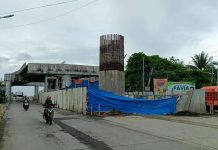
WESTERN Visayas has long anchored the Philippines’ reputation as the world’s leading supplier of seafarers. With nearly 70,000 maritime professionals deployed across the globe — and more than 12,000 from the region deployed in just the first month of this year as this paper reported yesterday — the contribution of Ilonggo, Antiqueño, Aklanon, Capiznon, and Guimarasnon seafarers is immense. Behind these numbers are families whose everyday survival depends on the steady inflow of dollar remittances.
Remittances from seafarers fund children’s education, build homes, and keep small businesses afloat in the barangays of Iloilo, Capiz, Aklan, and Antique, and Guimaras. They ripple across communities, boosting consumption and sustaining local economies. The story of seafaring here goes beyond global shipping — it ensures that a farmer’s child in Calinog can finish college, or that a small eatery in Pavia can keep its doors open.
But this economic lifeline also exposes a vulnerability. Overdependence on seafarers’ remittances leaves many households — and even our national economy — exposed to global shocks beyond their control. A downturn in the shipping industry, stricter international labor regulations, or geopolitical tensions in major trade routes could disrupt livelihoods almost overnight. The COVID-19 pandemic already revealed these cracks, when thousands of seafarers were stranded at sea or displaced, leaving their families at home scrambling for support.
This is where government policy must be more forward-looking. Yes, we must continue strengthening maritime education institutions which have kept our region at the forefront of the global industry. But at the same time, there must be parallel efforts to diversify economic opportunities here at home. More robust investments in agriculture modernization, information technology, and manufacturing could reduce the heavy reliance on overseas labor as a lifeline.
The pride of Western Visayas is that it produces world-class seafarers — disciplined, skilled, and resilient. But the region cannot forever rely on this alone. If we want a future where families in Estancia, San Jose, Libacao, Dumarao, or Nueva Valencia no longer have to wait for remittances just to get by, we must build a more balanced economy that can stand even if the winds shift in global shipping.
Seafaring will remain a backbone of our economy, but it cannot be its only backbone. For the sake of both the nation and the families that depend on it, Western Visayas must help lead the way in charting a more sustainable and diversified course.







